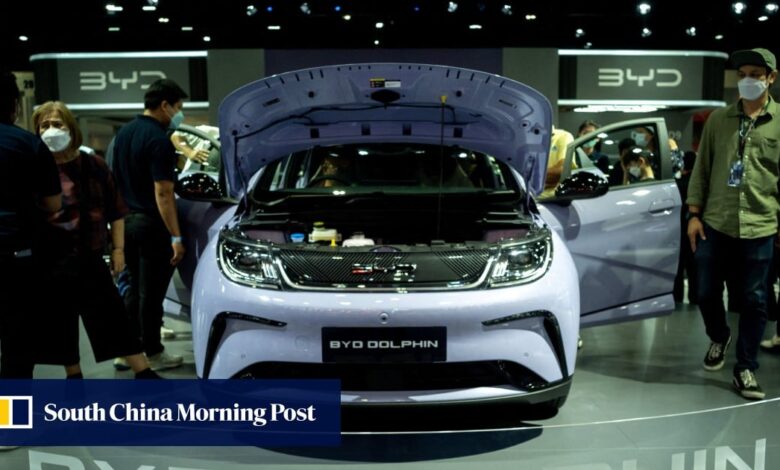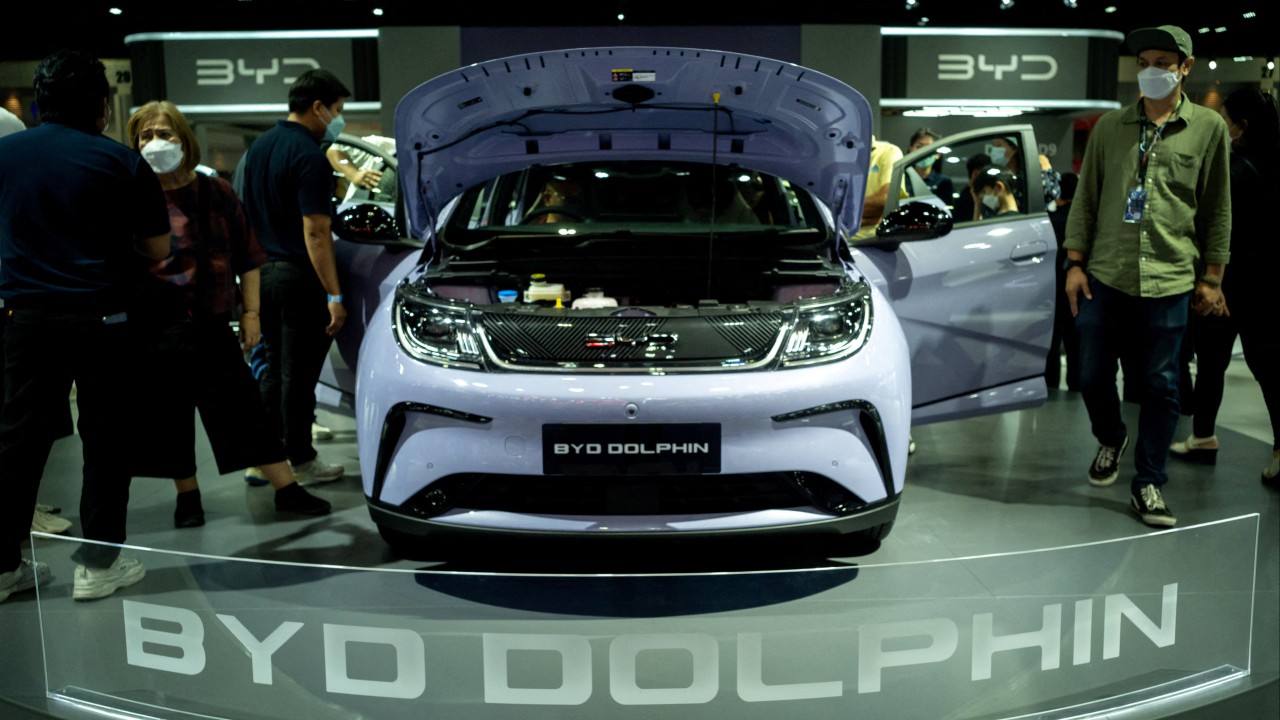Thailand moving full speed ahead to lure China’s EV ‘big fish’ to ‘Detroit of Asia’

[ad_1]

Thailand, renowned as the “Detroit of Asia” for its production of internal combustion engine cars, wants to break into the top tier of electric vehicle makers as part of a goal to lure 1 trillion baht (US$28 billion) of foreign investments in four years.
To that end, the Southeast Asian nation has set up a “special operation” centre to catch what its investment board head calls the “big fish” of the EV industry and other strategic sectors. Chinese EV makers are a top target, Narit Therdsteerasukdi, secretary general of the Board of Investment, said in an interview.
The agency’s investment target for the four years through 2027 has not been previously reported.
EV and automotive, electronics, digital, so-called regional headquarters and green economy are the five “strategic industries” being prioritised by the board for investments, Narit said.
While Thailand has already attracted a slew of Chinese companies including BYD Co., Great Wall Motor Co. and SAIC Motor Corp., a look at EV investment trends in 2022 shows the urgency for the nation to get in on the action. The US, Hungary, Mexico, Indonesia and Germany cornered the bulk of the more than US$106 billion investments pledged in EV projects globally last year, according to data from greenfield investment monitor fDi Markets.
Chinese EV makers pour money into Thailand’s ‘trailblazing industry’
Chinese EV makers pour money into Thailand’s ‘trailblazing industry’
The newly-set up Bangkok-based Special Operation Center For Strategic Investment is now working almost around-the-clock to identify high-potential investors and arrange high-level meetings for the government, and accompany Prime Minister Srettha Thavisin on important overseas trips to try to lock down investment pledges.
After Srettha’s visit to the US last month, the board is also courting what Narit calls “hyperscalers,” including Microsoft Corp., Google, and Amazon Web Services, to build or increase their presence in Thailand through fresh investments.
“The next few years from now is a golden opportunity for Thailand to attract investment by tapping into the restructuring in global supply chain and relocation trends. We must seize it,” said Narit, who last week joined Srettha’s meetings with potential new investors in Beijing. “We will be intensifying our efforts from now.”
Growth target
The BOI’s four-year foreign investment goal is in line with the government’s pledge to stimulate economic growth to about 5 per cent annually over the same period – a much-needed revival after Southeast Asia’s second-largest economy lagged most regional peers in recent years.
Thailand is hoping to lure more investments now than the 981 billion baht commitments it received between 2019 and 2022 using less than half the target industries then.
Tesla launches cheaper EVs in Thailand, competes with China
Tesla launches cheaper EVs in Thailand, competes with China
The nation has recorded 365 billion baht (US$10 billion) in foreign direct investment applications in the first eight months of this year, with Chinese investors accounting for a quarter of the total.
While Chinese investments are surging on the one hand, Japanese legacy carmakers, which made inroads into Thailand decades ago, have been pouring more money into factory expansion plans on the other, according to Narit. Still, Thailand is looking to help them shift to “clean energy” – not just fully electric cars but also hydrogen-powered models.
“The target is achievable, especially if we keep promoting EVs,” Narit said, adding that more firms in the EV supply chain, including battery makers, are expected to follow suit. “We’re aggressively seeking new players to set up shop in Thailand but that alone isn’t enough to make us number one.”
We’re not taking a single step back with EVs. We’re full speed ahead
In 2022, foreign direct investment applications in the automotive sector reached almost 100 billion baht (US$2.8 billion), a 347 per cent jump from 2021. Owing largely to the EV rush, automotive saw the third most investment pouring in after electronics and machinery, accounting for about 23 per cent of the value of foreign projects that year.
Thailand is preparing incentives to keep the EV investment momentum and quell continuity concerns raised by investors, Narit said. The so-called “EV 3.5” new incentive packages are expected to be submitted to the cabinet soon now that Srettha on Wednesday appointed the country’s new EV board under his chairmanship.
“We’re not taking a single step back with EVs,” Narit said. “We’re full speed ahead.”
[ad_2]
Source link

